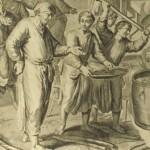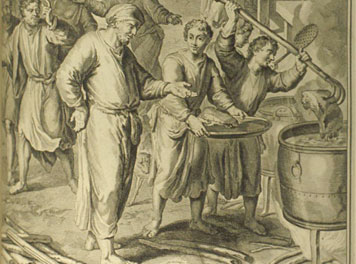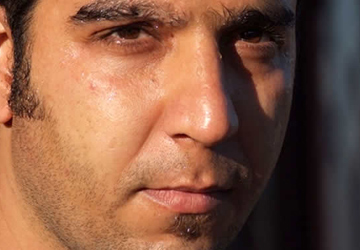 Now the sons of Eli were corrupt; they did not know the Lord (1 Samuel 2:12).
Now the sons of Eli were corrupt; they did not know the Lord (1 Samuel 2:12).
By Robin Sam
ALTHOUGH a short verse, 1 Samuel 2:12 is very profound in its import. Eli had two sons – Hophni and Phinehas. They were not only irreligious but also immoral. Unlike their dad, who was a faithful priest of the Lord, the sons openly stood for everything that was scandalous, disgraceful, disreputable and appalling. While one translation calls them ‘worthless men’, another dubs them as ‘scoundrels who had no respect for the Lord.’ Only one version has anything relatively less harsh to say about them. The God’s Word translation calls them ‘good-for-nothing priests’ who had no faith in the Lord. The KJV is simple and direct in its interpretation. It says they were ‘sons of Belial’ who ‘knew not the Lord.’
That verse is a very sad statement. It is telling in more ways than one. It indirectly talks about the utter futility of Eli’s ministry in his own home while it is more direct in calling a spade a spade – when it comes to describing what manner of men his sons were.
What was wrong with Hophni and Phinehas? What was their crime or wrongdoing that earned them one of the severest condemnations given in the Bible?
Look for a moment at some of the phrases or words used to describe them:
‘Worthless men’ (1st Samuel 2:12)
‘They would not listen to the voice of their father’ (1st Samuel 2:25)
‘The sin of the young men was very great in the sight of the LORD’ (1st Samuel 2:17)
‘The men treated the offering of the LORD with contempt’ (1st Samuel 2:17)
‘They did not know the Lord’ (1st Samuel 2:12)
They neither had respect for their father nor for his office as the priest of God. I don’t think Hophni and Phinehas turned into indolent, idle and loose men of worthless character overnight. They were in the making for a long time.
I guess the sons of Eli were allowed to grow up in this manner. Perhaps their father Eli was so occupied with his duties in the priestly office that he felt it was alright to neglect his family.
That is the message every believer and every worker of God married with children needs to take from 1 Samuel 2:12.
It doesn’t matter how busy a professional you are. You may be jet-setting around the world, earning accolade and success in your chosen field of work. You may be justifying the long and frequent absences from your home as something sacrificial done for the welfare of your wife and children. Perhaps you are a stay-at-home mom or dad – ever-present at home watching your children grow. Perhaps you quit your job or decided to remain unemployed for the sake of your children. But being a stay-at-home parent does not automatically guarantee that your children will be paragons of virtue.
The question is not – what have you provided for them? The real question worth asking is whom have you pointed out to them? Have you pointed Jesus Christ to them?
Eli was a failure as a dad because he tolerated the evil in his sons. He was a partaker of his sons’ evil. Our God is the same yesterday, today and forever. If He hated evil in the sons of Eli in those days, then be assured that even today He hates sin in our lives and our children’s, no less.
Parenting offers more challenges today than ever. Do you know why? These are ‘perilous times’ (2 Timothy 3:1) and ‘your adversary the devil walks about like a roaring lion, seeking whom he may devour’ (1 Peter 5:8). The enemy knows he has only a short time left and he will do everything in his means to destroy the family, the Christian family to be more precise.
What then must we do?
In Judges 13:8 we see a wonderful prayer by Manoah. Let me quote it here for you:
Then Manoah prayed to the Lord, and said, “O my Lord, please let the Man of God whom You sent come to us again and teach us what we shall do for the child who will be born.”
If we have neglected our duty as parents, then Manoah’s prayer is a great starting point in good parenting. Can we like Manoah pray: ‘Lord, fill your Holy Spirit in us again and teach us what we shall do for the child(ren)’?
Apostle Paul commended his traveling companion Timothy not for his seafaring skills or nautical knowledge but for his Christian upbringing. In 2 Timothy 3:15, Paul says of Timothy: ‘…from childhood you have known the Holy Scriptures, which are able to make you wise for salvation through faith which is in Christ Jesus.’
Do our children have a good grounding in the Bible? If not, it’s not too late to start now.
Timothy was able to continue in the things which he had learned and been assured of because his foundation was in Christ (1 Corinthians 3:11).
Robin Sam is the editor of The Christian Messenger. You can reach him at editor [at] christianmessenger [dot] in





















